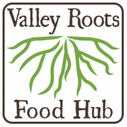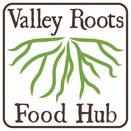Soil Health
from Soil Health Key Points
by Natural Resources Conservation Service
https://www.nrcs.usda.gov/Internet/FSE_DOCUMENTS/stelprdb1082147.pdf
What’s critical about soil health now?
1. World population is projected to increase from 7 billion in 2013 to more than 9 billion in 2050. To sustain this level of
growth, food production will need to rise by 70 percent.
2. Between 1982–2007, 14 million acres of prime farmland in the U.S. were lost to development.
3. Improving soil health is key to long-term, sustainable agricultural production.
Soil health matters because:
1. Healthy soils are high-performing, productive soils.
2. Healthy soils reduce production costs—and improve profits.
3. Healthy soils protect natural resources on and off the farm.
4. Franklin Roosevelt’s statement, “The nation that destroys its soil destroys itself,” is as true today as it was 80 years ago.
5. Healthy soils can reduce nutrient loading and sediment runoff, increase efficiencies, and sustain wildlife habitat.
What are the benefits of healthy soil?
1. Healthy soil holds more water (by binding it to organic matter), and loses less water to runoff and evaporation.
2. Organic matter builds as tillage declines and plants and residue cover the soil. Organic matter holds 18-20 times its weight in water and recycles nutrients for plants to use.
3. One percent of organic matter in the top six inches of soil would hold approximately 27,000 gallons of water per acre!
4. Most farmers can increase their soil organic matter in three to 10 years if they are motivated about adopting conservation practices to achieve this goal.
How to begin your path to Healthy Soils:
1. Keep it covered.
2. Do not disturb.
3. Use cover crops and rotation to feed your soil.
4. Develop a soil health management plan with the help of NRCS.
Follow four basic soil health principles to improve soil health and sustainability:
1. Use plant diversity to increase diversity in the soil.
2. Manage soils more by disturbing them less.
3. Keep plants growing throughout the year to feed the soil.
4. Keep the soil covered as much as possible.
What is a Soil Health Management Plan?
1. It’s a roadmap to soil health.
2. It outlines a system of practices needed to enhance crop production and soil function, and improve or sustain water quality, air quality, energy efficiency and wildlife habitat. Some of the recommended conservation practices include: Conservation Crop Rotation, Cover Crops, No Till, Mulching, Nutrient Management, and Pest Management.
3. It provides environmental, economic, health, and societal benefits.
4. It saves energy by using less fuel for tillage, and maximizes nutrient cycling.
5. It saves water and increases drought tolerance by increasing infiltration and water holding capacity as soil organic matter increases.
6. It reduces disease and pest problems.
7. It improves income sustainability for farms and ranches.
8. It improves plant health.
Valley Roots "Regenerative Soil Farmer" (RSF) Program
With support from the San Luis Valley Conservation and Connection Initiative, the LOR Foundation (Livability Opportunity & Resiliency), and the Rio Grande Headwaters Land Trust, and in partnership with the Mosca-Hooper Conservation District, Valley Roots Food Hub is pleased to promote and work with farmers growing food in living soils. You will see the RSF acronym throughout our online market associated with those producers.
Our current list of Regenerative Soil Farmers:
Absmeier High Altitude Garlic, RSF
Antonio Garcia, RSF
Black Bear Orchards, RSF
Bountiful Ventures, RSF
Cactus Hill Farm, RSF
Chokecherry Farm, RSF
Chokurei Ranch, RSF
Delicious Orchards, RSF
Diestel Turkey Ranch, RSF
First Fruits Organic Farms, RSF
Grace's Garden, RSF
Grand Island Bison, RSF
Green Earth Farm, RSF
High Plains Coop, RSF
Hobbs Family Farm, RSF
Jack Rabbit Hollow Farm, RSF
Jones Farm Organics, RSF
KW Farms, RSF
Laz Ewe 2 Bar Goat Dairy, RSF
Milberger Farms, RSF
Ring a Ding Farms, RSF
Salazar Natural Meats, RSF
Sol Mountain Farm, RSF
Southern Colorado Farms, RSF
Weathervane Farm, RSF
White Mountain Farm, RSF
White Rock Specialties, RSF


